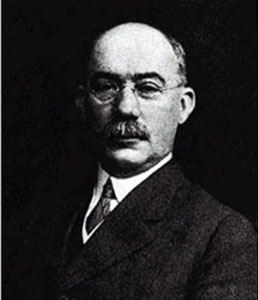MSP® (which stands for Managing Successful Programmes) is the de-facto standard methodology for Programme Management in the UK.
Silicon Beach Training offer MSP Trainingin Brighton, Sussex, including MSP Foundation Training and MSP Practitioner Training
What is a Programme?
Whilst Project Management is about controlling a project, Programme Management is concerned with controlling a group of related projects.

How to Define a Programme with MSP
MSP provides a structured framework for managing programmes, and one of the very first of these steps is to define your Programme.
The basis for developing the programme definition in MSP is The Programme Brief. This also provides the basis for the programme’s strategies and plans for programme governance. The Programme Brief is a very important document, as it provides the basis for deciding whether to even proceed with the programme or not! Detailed planning of the programme is essential, and the Programme Brief is where this is undertaken.
The MSP Programme Brief is used as the starting point for creating a Programme Definition Document. This document outlines
- What your MSP programme is going to do
- How it's going to do it
- Who is involved in the Programme
- How the Programme will be controlled
- The justification for going forward with the Programme
From this point, the Business Case and governance are now developed.
You can learn more about the structure of MSP by attending one of our accredited MSP Foundation Training or MSP Practitioner Training courses in Brighton, Sussex.
Andy Trainer
8 Dec 2010
Learn something new about Project Management on International Project Management Day.

We've been writing about Project Management, PRINCE2 and MS Project for over five years now to get people interested in project management and support attendees on our courses.
Below is my list of what I think are the best project management resources, guides, tips and blog posts published on our site. I've put them together today in recognition of International Project Management Day to help aspiring and experienced project managers improve their skills and manager better projects.
I've covered all angles and all abilities so whether you're new to project management or have 20 years of experience you can learn something new today.
Andy Trainer
7 Nov 2013
Learn something new about Project Management on International Project Management Day.

We've been writing about Project Management, PRINCE2 and MS Project for over five years now to get people interested in project management and support attendees on our courses.
Below is my list of what I think are the best project management resources, guides, tips and blog posts published on our site. I've put them together today in recognition of International Project Management Day to help aspiring and experienced project managers improve their skills and manager better projects.
I've covered all angles and all abilities so whether you're new to project management or have 20 years of experience you can learn something new today.
Andy Trainer
7 Nov 2013
Using specific strategies to keep on top of how you use your time is as essential for managers as it is for anyone else.
In fact, you’ll probably have even more to factor into your time ‘budget’ because in many ways you’ll be responsible for the day-to-day activities of your employees/team as well as your own.
This is something we emphasise on our Management Training here at Silicon Beach and it's also a key aspect of Project Management, as explained on our PRINCE2 Training.
In this post are a few quick fix ideas that make day-to-day time management more organised and effective.
The Three Ps
- PEOPLE
- PAPER
- PLANNING
Get these three under control and you are well on your way to being organised (and saving time).

Andy Trainer
24 Jul 2013
Using specific strategies to keep on top of how you use your time is as essential for managers as it is for anyone else.
In fact, you’ll probably have even more to factor into your time ‘budget’ because in many ways you’ll be responsible for the day-to-day activities of your employees/team as well as your own.
This is something we emphasise on our Management Training here at Silicon Beach and it's also a key aspect of Project Management, as explained on our PRINCE2 Training.
In this post are a few quick fix ideas that make day-to-day time management more organised and effective.
The Three Ps
- PEOPLE
- PAPER
- PLANNING
Get these three under control and you are well on your way to being organised (and saving time).

Andy Trainer
24 Jul 2013
|
Among all the other scandals of recent weeks came the revelation that Lloyds PPI complaints handlers were being trained to purposely reject valid claims. An audio recording of an in-company trainer was seized upon by The Times as evidence that the banking group had been engaging in less than ethical practices. The trainer told trainees to flat out deny or refuse claims, as most customers would give up trying to claim after an initial rejection. |
 |
Lloyds place the blame on the firm Deloitte who handled the whole program and another firm, Momenta, who was responsible for the hiring and training of the employees dealing with claims.
It shows that just as good training can have an immediate and lasting positive effect on businesses, bad training can have a severely negative one - something we emphasise on our Train the Trainer Course.
So how can businesses and individuals make sure they're getting the best possible training?
The Trainer's Responsibility
Much of the responsibility for quality training falls at the feet of the trainer; after all they're the ones delivering the training! Not only do they need to fully understand the needs of the client, they must find a way to communicate their message in an engaging and memorable way.
They also have a duty to not misinform. In the Lloyds case, it would appear that the trainer either gave false information to delegates or at the very least recommended methods that were in no way best practice.
Andy Trainer
14 Jun 2013
|
Among all the other scandals of recent weeks came the revelation that Lloyds PPI complaints handlers were being trained to purposely reject valid claims. An audio recording of an in-company trainer was seized upon by The Times as evidence that the banking group had been engaging in less than ethical practices. The trainer told trainees to flat out deny or refuse claims, as most customers would give up trying to claim after an initial rejection. |
 |
Lloyds place the blame on the firm Deloitte who handled the whole program and another firm, Momenta, who was responsible for the hiring and training of the employees dealing with claims.
It shows that just as good training can have an immediate and lasting positive effect on businesses, bad training can have a severely negative one - something we emphasise on our Train the Trainer Course.
So how can businesses and individuals make sure they're getting the best possible training?
The Trainer's Responsibility
Much of the responsibility for quality training falls at the feet of the trainer; after all they're the ones delivering the training! Not only do they need to fully understand the needs of the client, they must find a way to communicate their message in an engaging and memorable way.
They also have a duty to not misinform. In the Lloyds case, it would appear that the trainer either gave false information to delegates or at the very least recommended methods that were in no way best practice.
Andy Trainer
14 Jun 2013
When you come to us for training in PRINCE2, or to learn how to use Microsoft Project, we'll teach you about using Gantt charts to plan and track the progress of your project.
But what do we know about where they came from? Here’s a little bit about Henry Gantt, the brains behind the Gantt Chart.
Henry Laurence Gantt
Henry Gantt was born in 1861 in Maryland, USA. He died in 1919 and developed the management tool that is the Gantt chart just after the turn of the century. He was educated at the Stevens Institute of Technology and became a mechanical engineer.
Gantt soon became known for his passion for economy/efficiency and for his sense of social responsibility. He was an advocate for the social responsibility of businesses and of applying scientific analysis to improve efficiency in industry. While he was a technician, he always strove to develop the most economical methods of production, and achieved a job role of “efficiency expert” at a textile plant in 1904.

Andy Trainer
16 Aug 2012